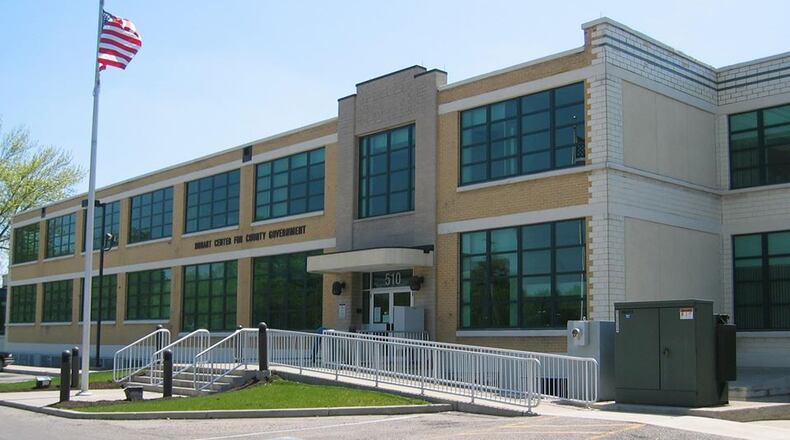The commissioners said they would commit $48,000 in county American Rescue Plan Act funds to the 211 system overseen by the United Way of Miami County. The county pays the United Way, who then contracts with Helpline, which runs a call center.
The 211 phone line is staffed by crisis-trained social workers 24 hours a day, seven days a week. Those workers are armed with information on local service agencies to help make referrals for people who call.
The commissioners in 2019 provided $50,000 for startup of the system. At the time, Miami County was the largest county in the state without a 211 system.
The needs are wide-ranging, from assistance with food, shelter, utilities, mental health, veterans assistance, health care and domestic violence support, among some requests handled.
So far, the county startup money and $1,000 from the Miami County Fraternal Order of Police have paid for the service, said Richard Bender, United Way of Miami County chief financial officer.
The initial grant money — $41,800 has been spent so far — has paid for database creation, website set-up, initial fees, ongoing quarterly fees for calls and ongoing database maintenance, Bender said. Those costs also included initial marketing, with a postcard mailed to every county residence and others distributed in schools, agencies and other public places.
The county’s system was in the works when COVID-19 hit, so it was initially used to help provide information and assistance for pandemic-related issues. It has been expanded now to include the other areas of information and services.
The first year (on a July 1 to June 30 calendar), the system handled 872 calls. In the second year, there have been 1,284 calls.
“Our calls have expanded … to about 200 calls per month,” Sean Ford, United Way of Miami County chief executive officer, told the commissioners.
The highest number of calls have come from Piqua, followed by Troy, Tipp City and then outlying communities across the county, Ford said.
The biggest needs people call about have been utility assistance, rent assistance, homeless services, food insecurity, transportation and COVID, he said.
“This program, in my mind, is life-changing for the people in this community. We owe a huge debt of gratitude to you guys,” Ford told the commissioners.
During the next three years, Ford said more time will go toward recruiting support.
“In those three years, we will be able to find and secure community funding and yearly contracts with some area businesses, hopefully. It will give us some time to secure that funding,” Ford said.
Tim Eggleston, city manager in Tipp City, said he was not aware of the program or who is paying for it.
Patrick Titterington, Troy’s service and safety director, said the city appreciates the commissioners’ commitment to an “important” service benefiting all county residents.
“It is reassuring that the county would commit a portion of their $20 million ARPA allocation. Unfortunately, the state of Ohio saw fit to cut ARPA funds to municipalities almost in half and, coupled with the inflationary pressures we are experiencing firsthand in 2022, discretionary resources aren’t available in the short term,” Titterington said.
Paul Oberdorfer, Piqua city manager, had a similar response, also noting the ARPA funding cuts. “An uncertain economy and lack of discretionary funds prohibits the city from participating in the near term,” he said.
Both Oberdorfer and Titterington said if commitments are received from all townships, villages and cities in the county, as well as businesses, associations and other community groups, they would consider a cost sharing proposal in 2025. The city would want to evaluate program outreach and cost effectiveness to determine future funding participation, Titterington said.
Commissioner Greg Simmons, a long-time 211 advocate, said he knows the system is being put to good use.
“This is one of the most needed programs that we have for the citizens of Miami County. I would agree with Mr. Mercer that the other municipalities need to step up after these three years and help support this program, " Simmons said.
More information on the system can be found at miamicounty211.org.
Contact this contributing writer at nancykburr@aol.com
About the Author
